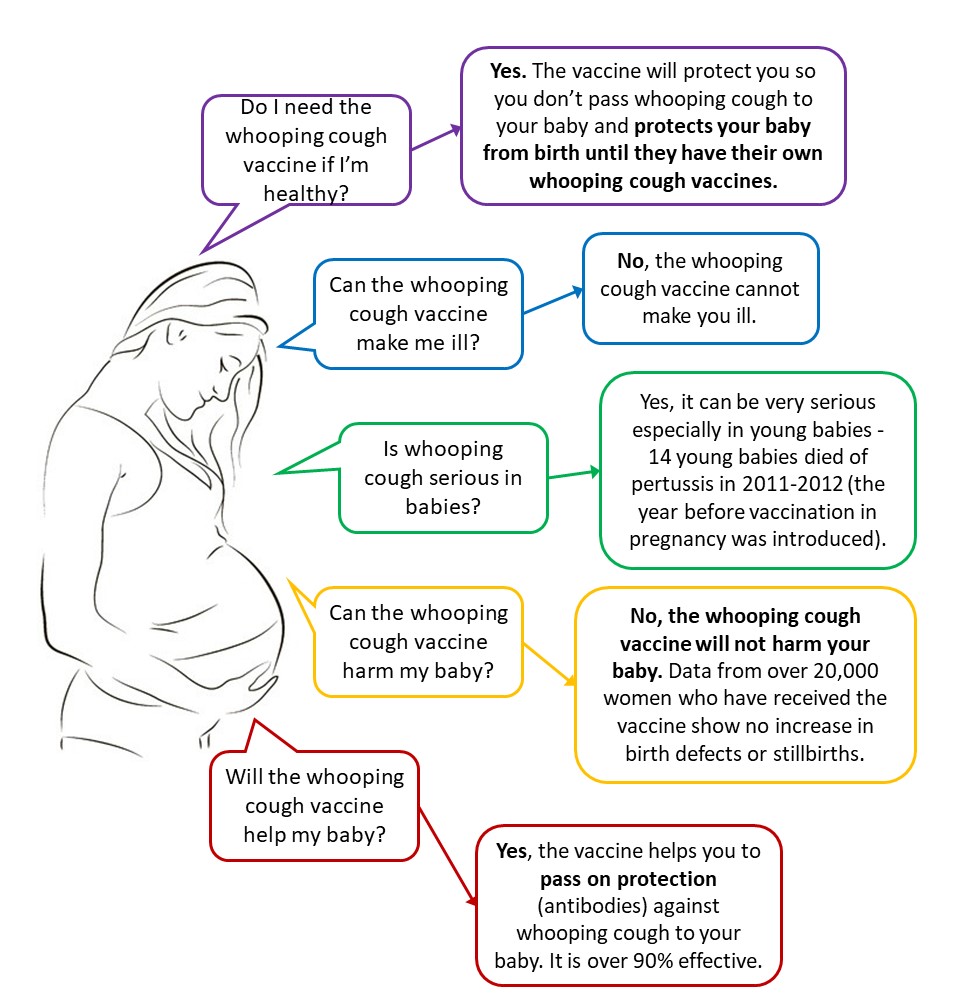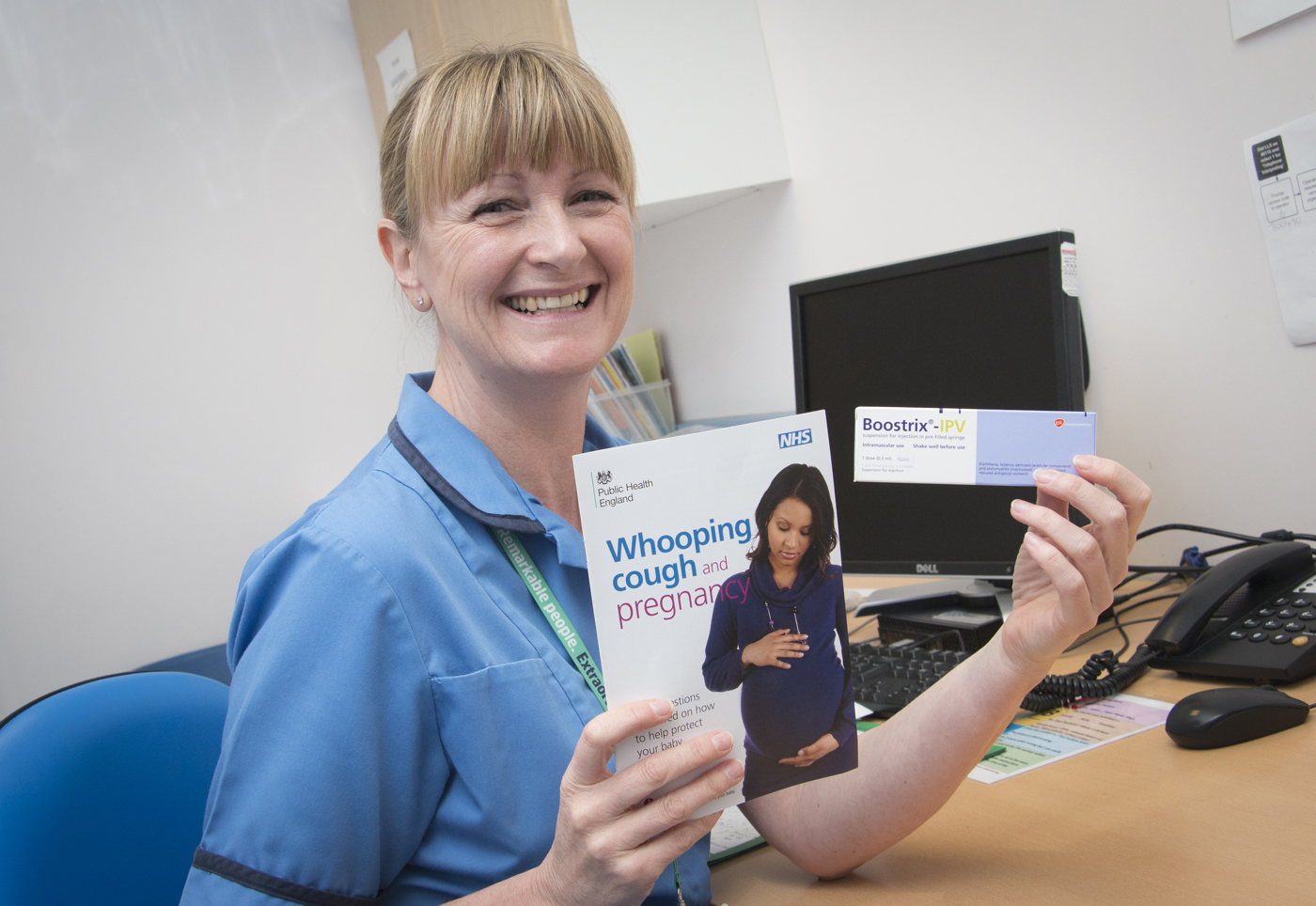Whooping cough causes serious long bursts of continuous coughing and choking, which makes it difficult to breathe. This sometimes causes a ‘whoop’ noise where there is an attempt to gasp for breath between coughing.
Symptoms in adults and children may include:
- Cold like symptoms (runny nose, red and watery eyes, sore throat and slightly raised temperature).
- Intense coughing bouts lasting a few minutes at a time (usually starting a week from onset of cold like symptoms).
- Coughing up thick mucus which may be followed by vomiting.
- Gasping for breath between coughing causing a ‘whoop’ noise (although not everyone experiences this).
- Slight bleeding to the eyes or under skin from intense coughing.
- Turning blue (babies and young children) from difficulty breathing.
In new born (and very young) babies, the cough may not be particularly noticeable but there may be brief periods where they stop breathing.
The coughing bouts will start to become less severe and less frequent over time. The infection usually lasts for around 2-3 months and the severity of the infection is different from person to person; it is usually serious.
If you are worried that your baby or child have whooping cough, click here





